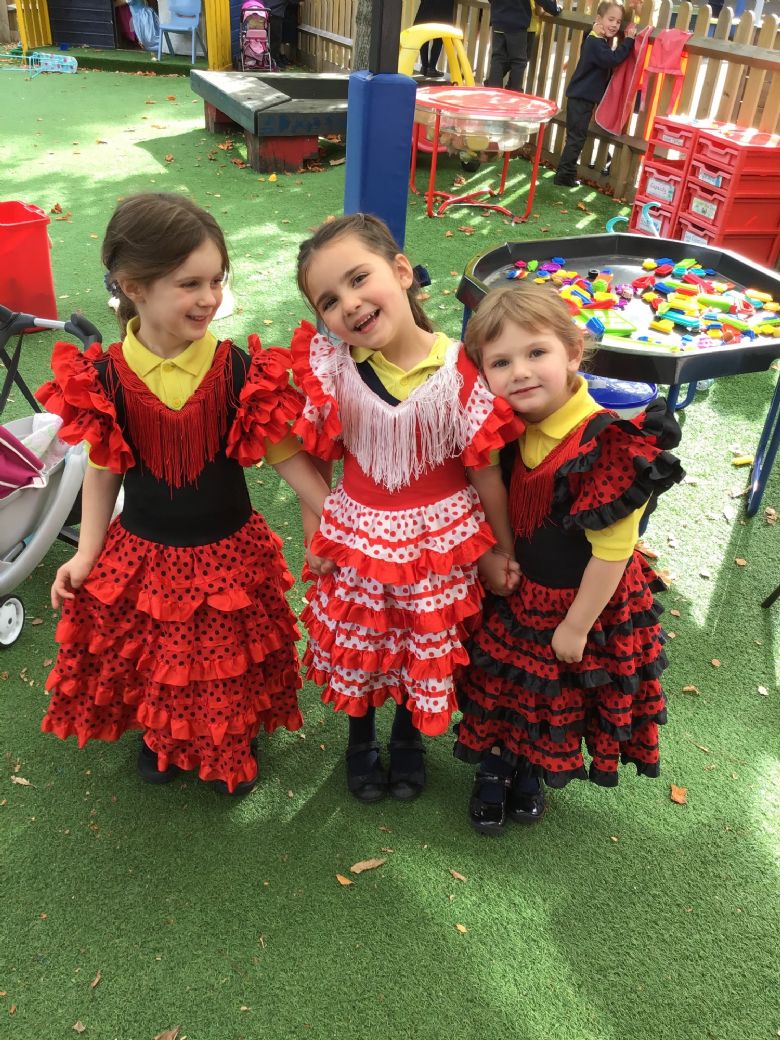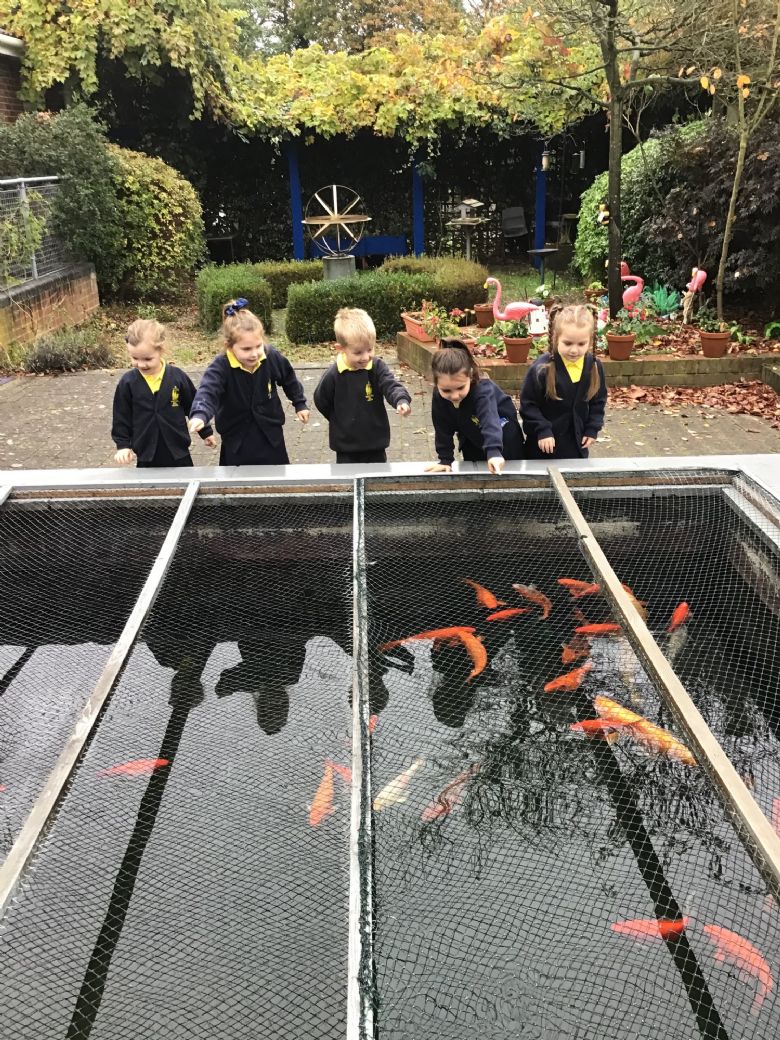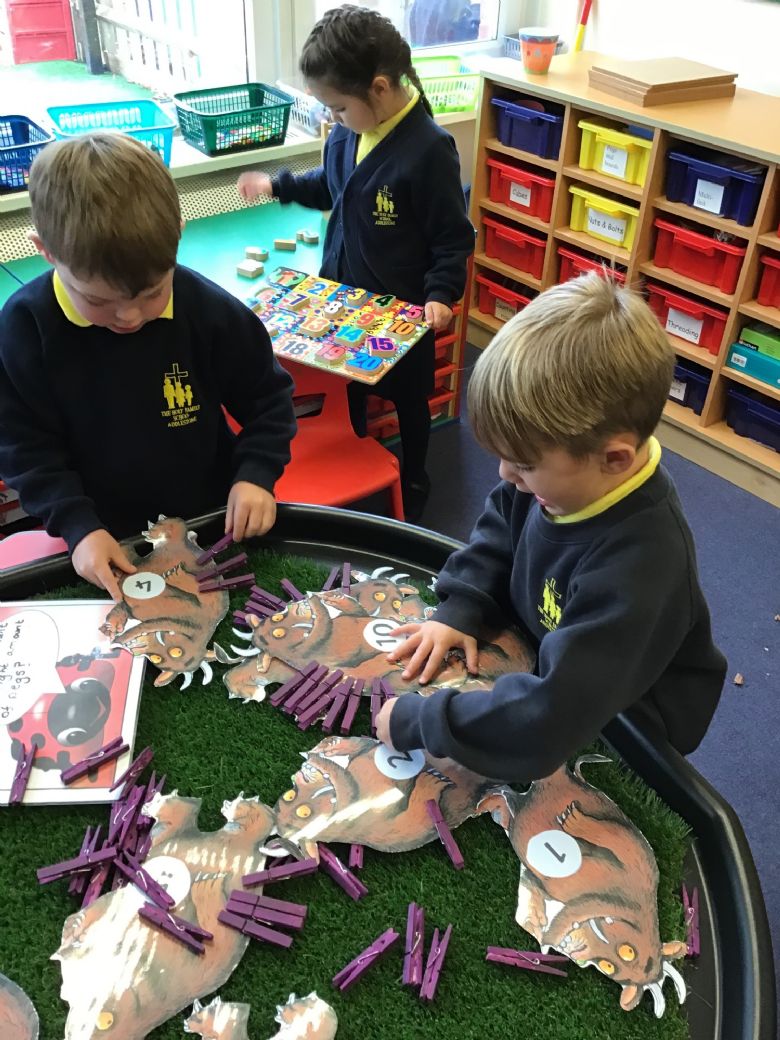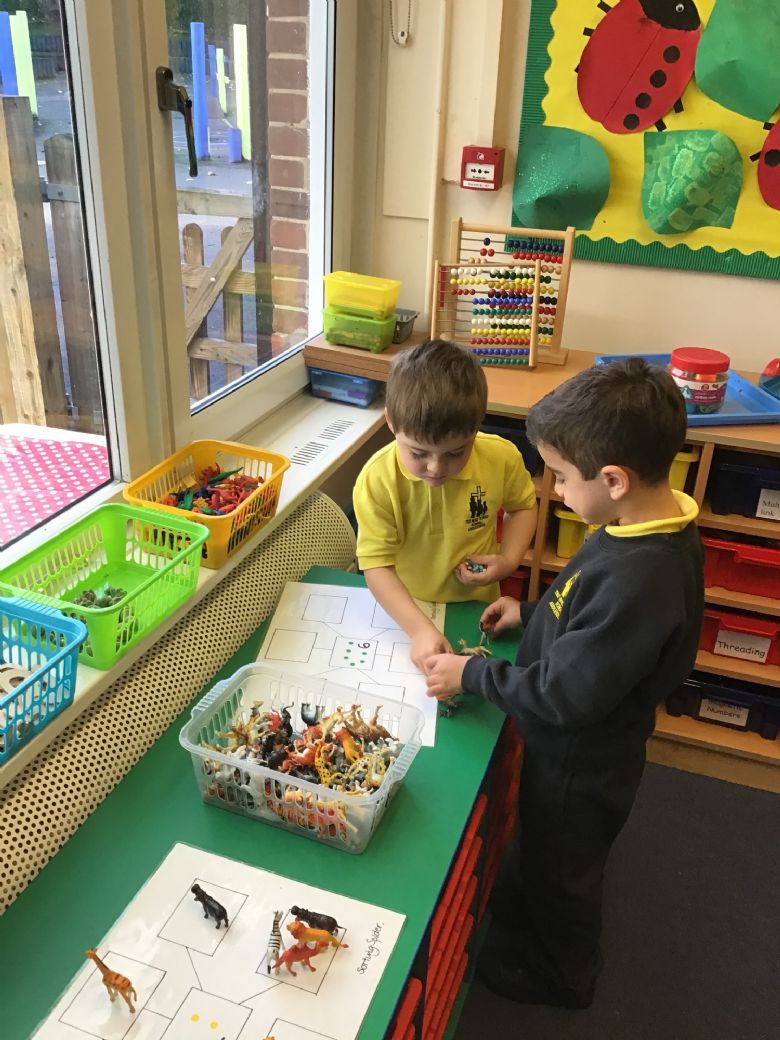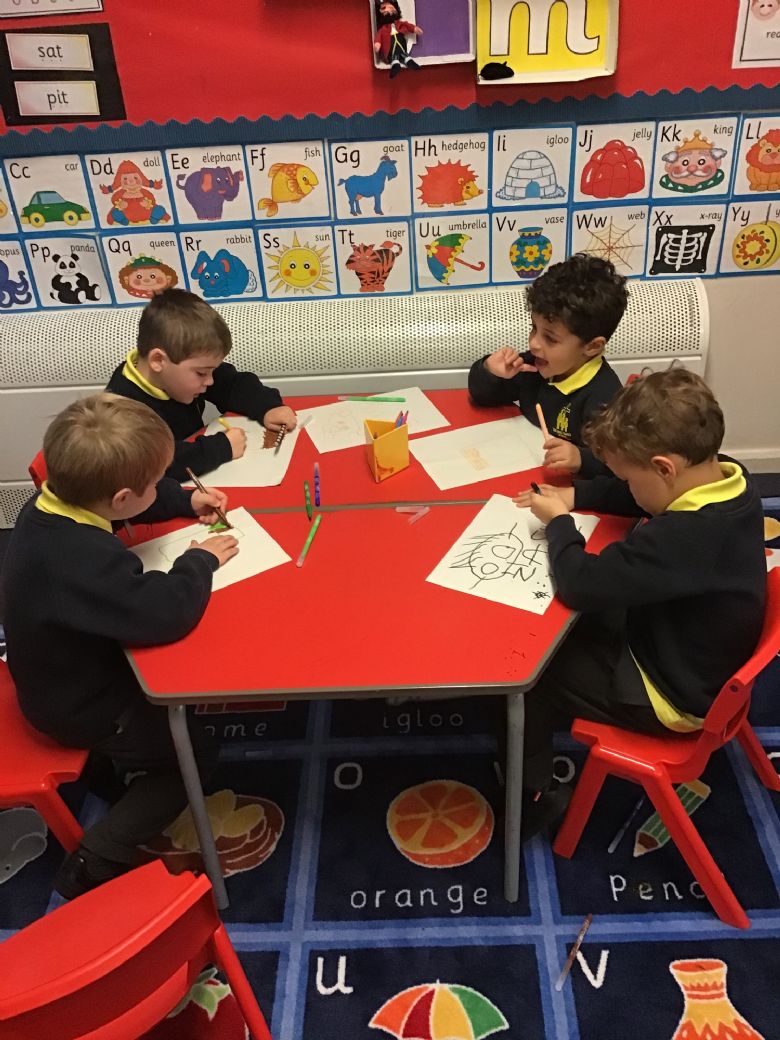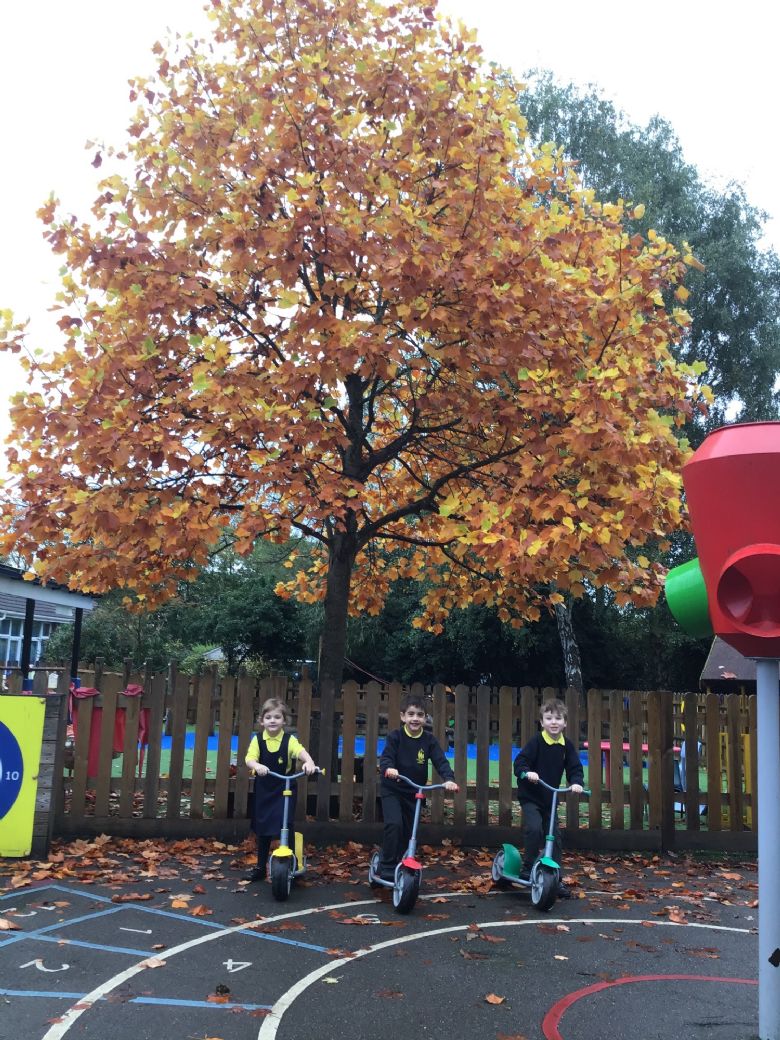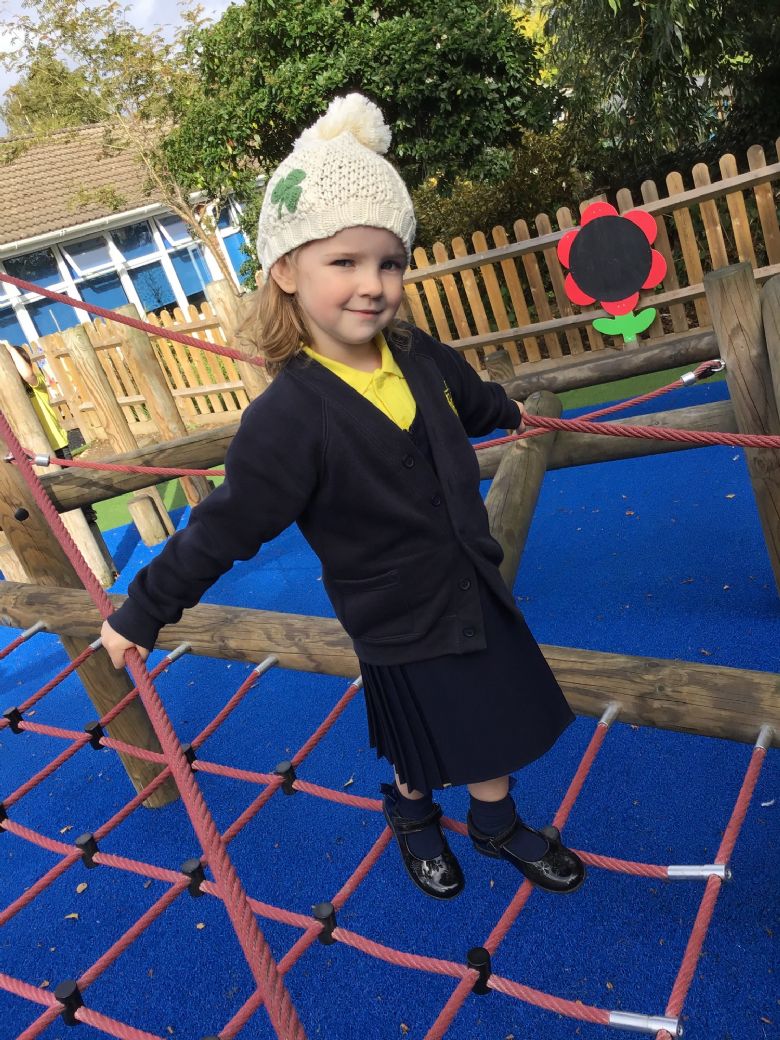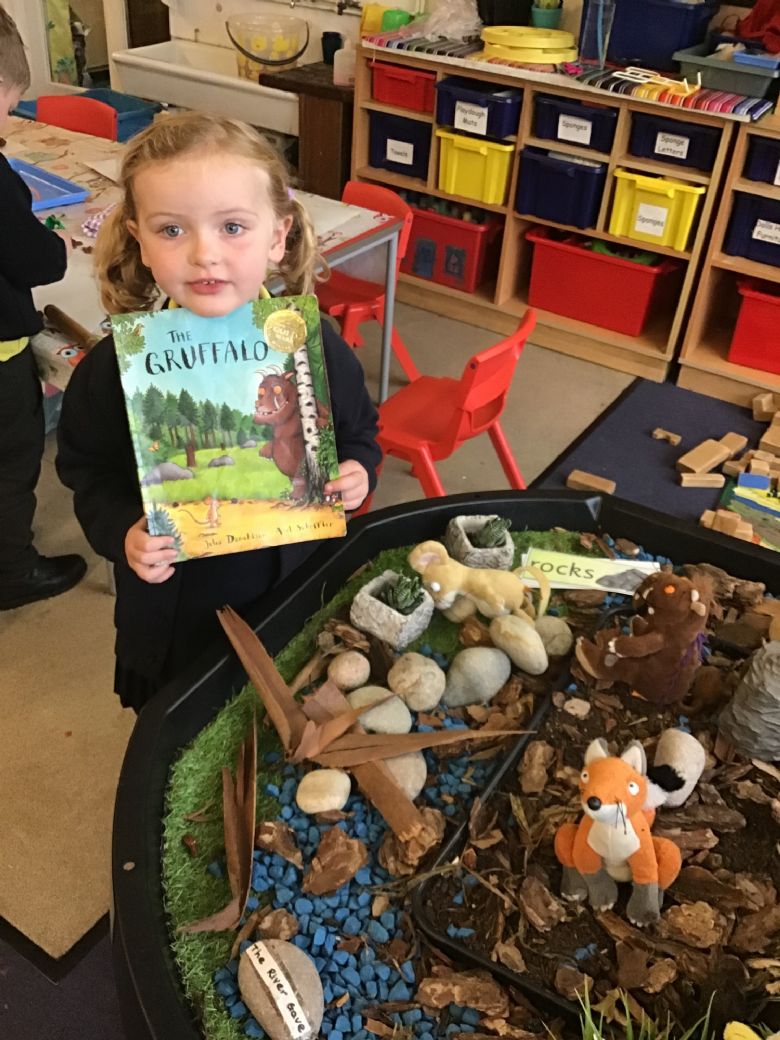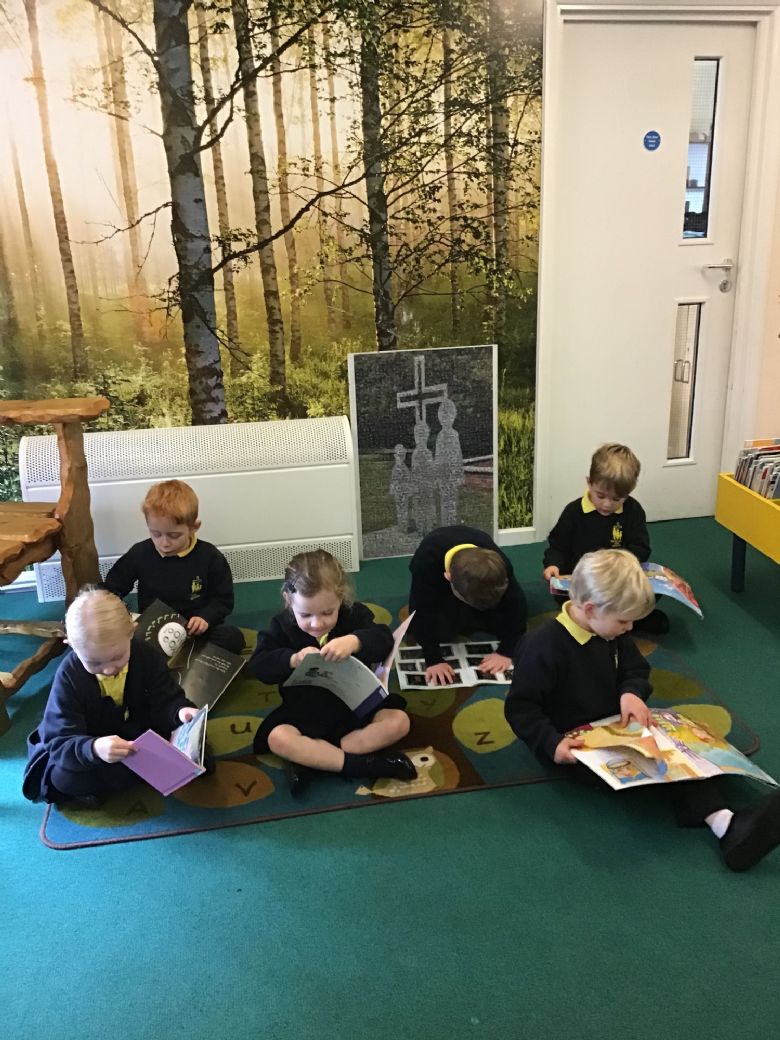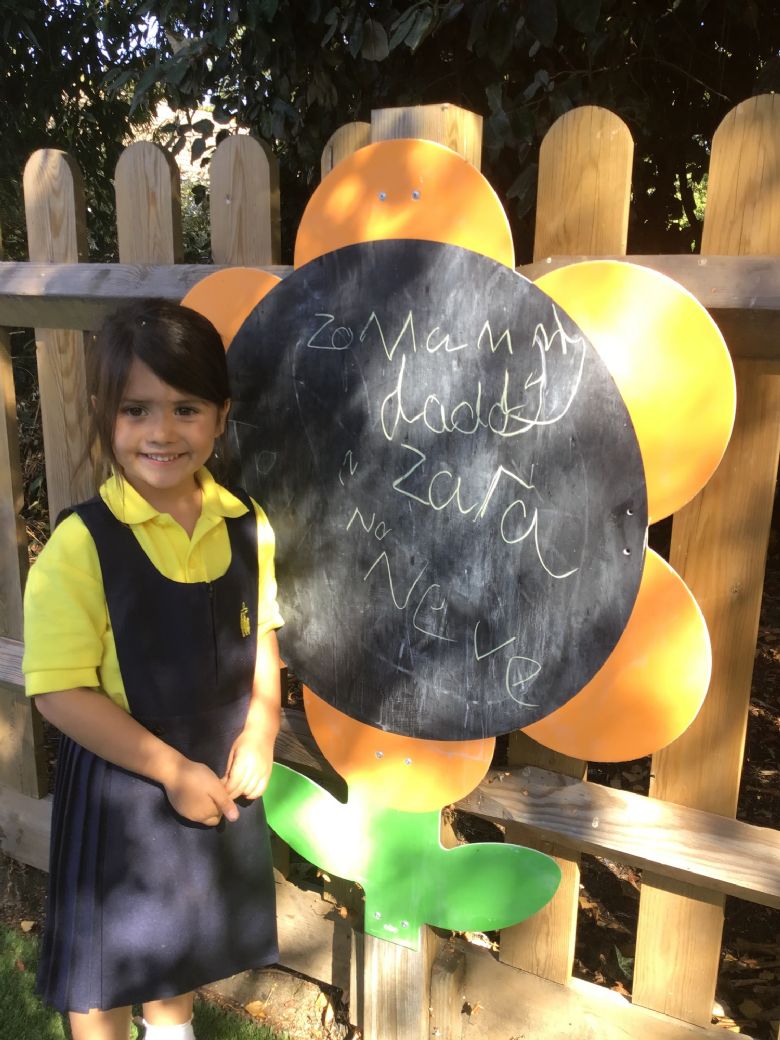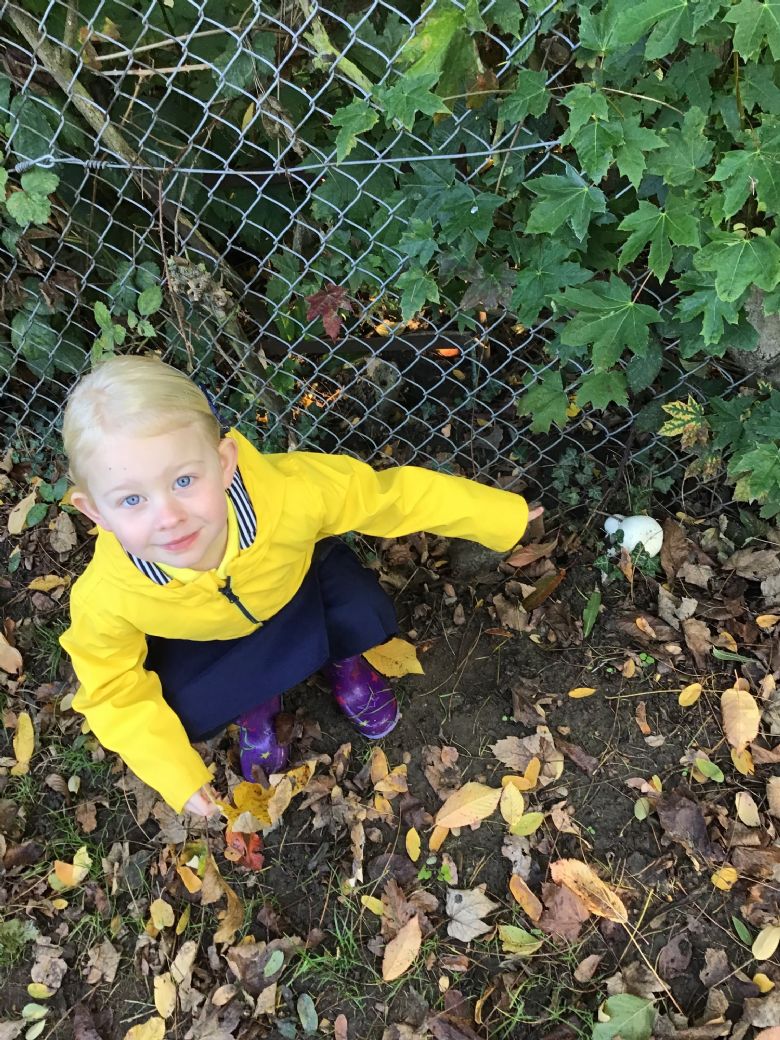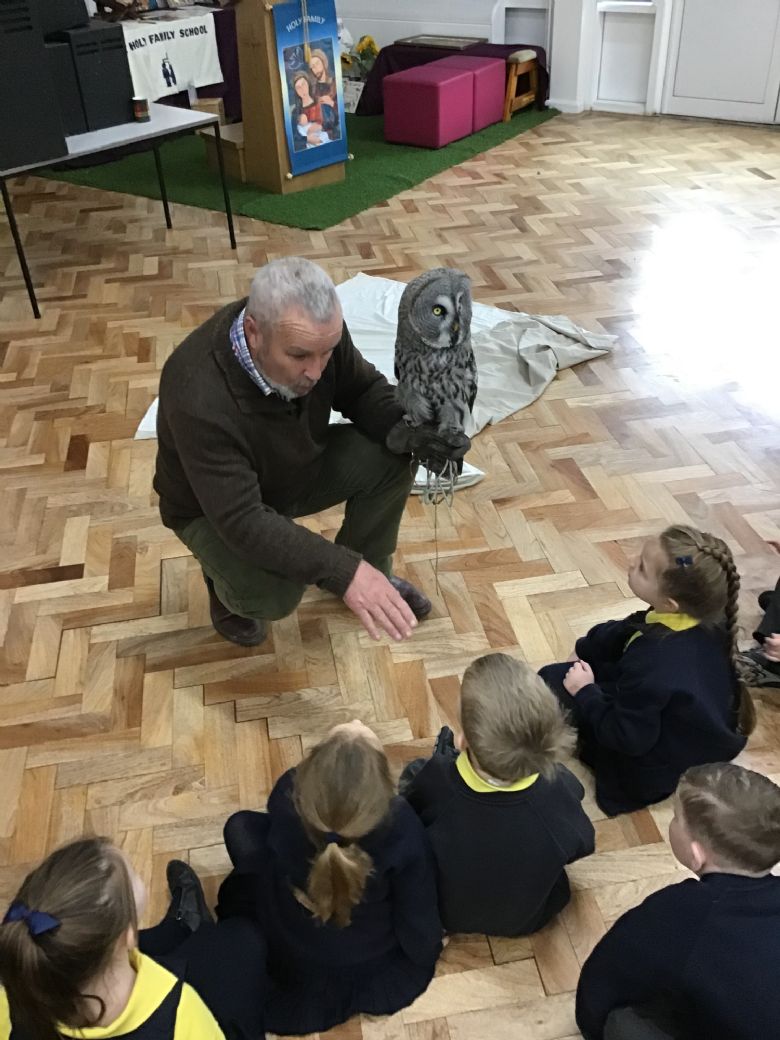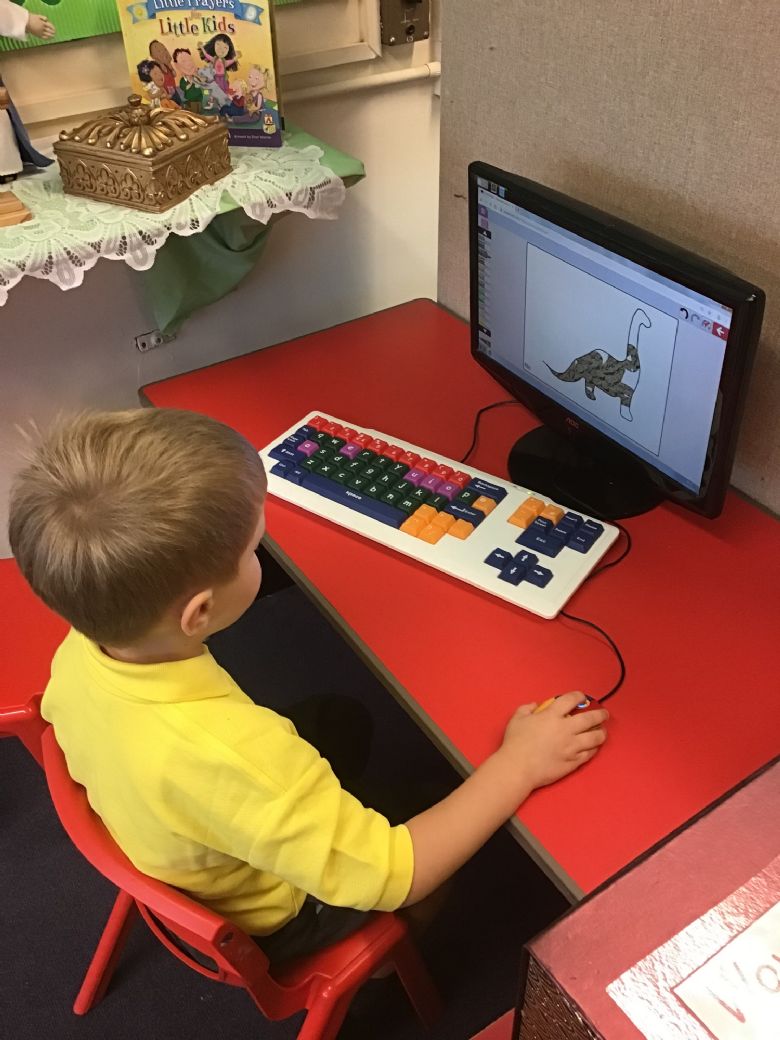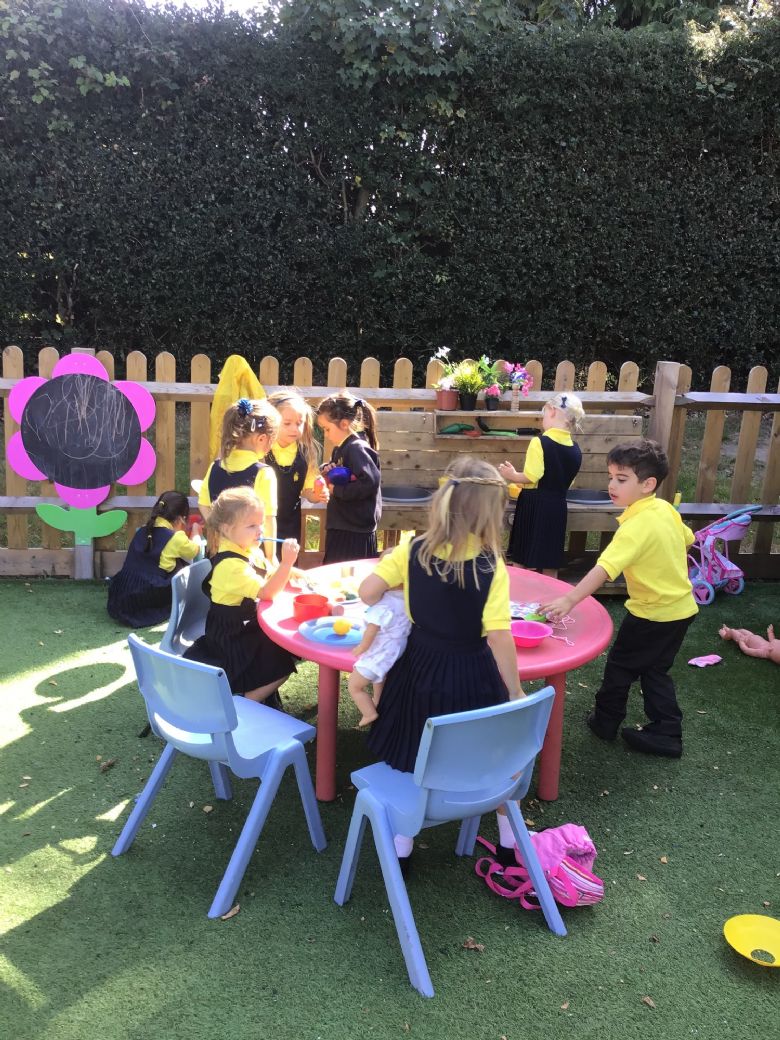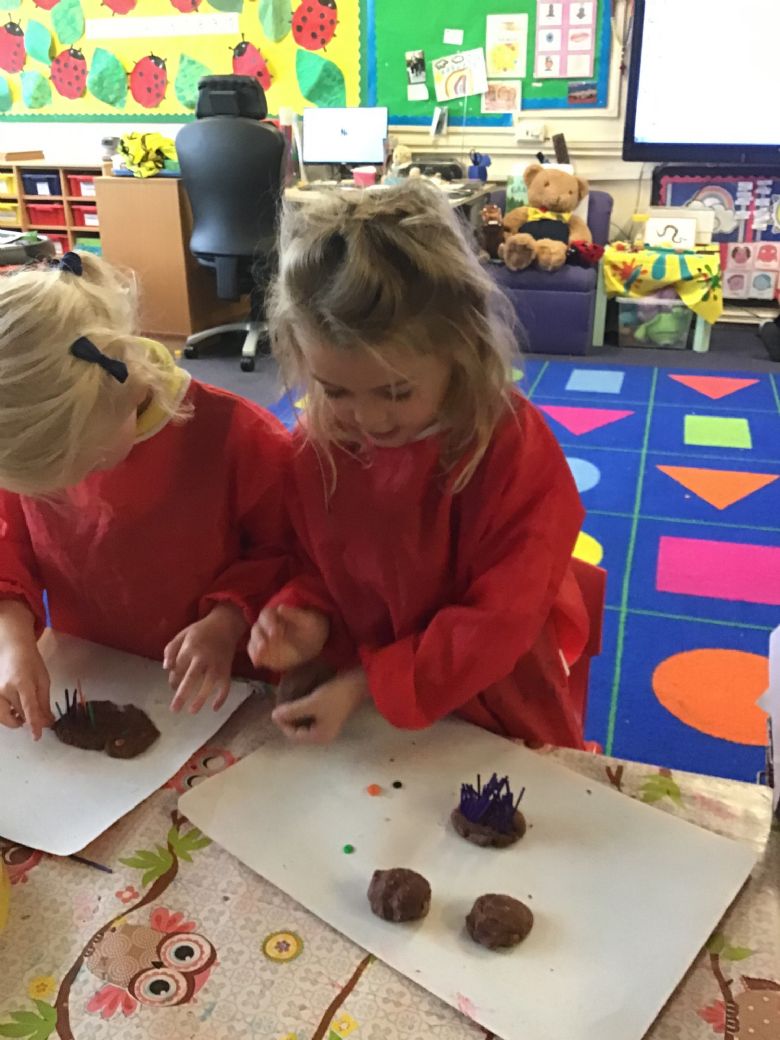Early Years
Early Years Foundation Stage
“A good school provides a rounded education for the whole person.
And a good Catholic school, over and above this, should help all its students to become saints….” Pope Benedict XVI, 2010
The Early Years Foundation Stage is the first building block in a child’s education. We believe that every child deserves a rich and inspiring education, where they can explore, experiment and investigate a wide range of hands on practical learning experiences both indoors and outdoors. Staff provide both independent and adult led activities and our core intention is to provide all children with a creative curriculum that meets their needs and sufficiently challenges their development.
At centre stage is our exciting, inspiring curriculum that is implemented through a sequence of progressive skills, covering all areas of learning and responds to children’s physical, emotional, social and intellectual needs. The impact upon all children throughout their journey in Reception Class will prepare them with the skills needed for their next stage in life.
What is the Early Years Foundation Stage? (EYFS)
The EYFS is the stage of education for children from birth to end of the Reception year. It is based on the recognition that children learn best through play and active learning. The EYFS framework describes how schools should work with children and their families to support their development and learning. It describes how children should be kept safe and cared for and how we can all make sure that children achieve the most that they can in their earliest years of life.
It is based on four basic principles:
Theme: A Unique Child
Every child is a competent learner from birth who can be resilient, capable, confident and self-assured.
Theme: Positive Relationships
Children learn to be strong and independent from a base of loving and secure relationships with parents and Early Years staff at school.
Theme: Enabling Environments
The environment plays a key role in supporting and extending children's development and learning.
Theme: Learning and Development
Children develop and learn in different ways and at different rates and all areas of learning and development are equally important and interconnected.
Why is it important?
It is called the Early Years Foundation Stage because it gives a secure foundation for future learning. Childhood is important and we want all children at Holy Family to have many, many enjoyable, successful and satisfying learning experiences. We aim to develop positive attitudes to learning in all our children.
All children learn best from experiences that are suitable for their stage of development. Play is the key to the way young children learn. Through play children can develop the confidence for learning, social skills needed for personal development, and skills needed for writing, counting and exploring their environment. In that way children become more independent and are able to tackle simple problems.
Foundation Stage Curriculum
The Foundation Stage curriculum is split into seven areas of learning.
Prime areas
1. Personal, Social and Emotional Development
2. Communication and Language
3. Physical Development
These are crucial for developing children’s curiosity and enthusiasm for learning
Specific Areas
4. Literacy
5. Mathematics
6. Understanding the world
7. Expressive arts and design
Personal, Social and Emotional Development
- To play, share and take turns with other children.
- To talk and listen to others.
- To solve problems using compromise.
- To have confidence to try new activities.
- To share our ideas and opinions.
- To understand and talk about our feelings and behaviour and that of others.
Communication and Language
- Encourages children to develop conversation skills in a rich language environment and in a range of situations
- Will help children to develop listening and concentration skills
- Enables children to express themselves and understand and act on instructions given to them.
 |
Physical Development
- Supports children’s healthy development
- Provides opportunities for using a range of large and small equipment
- Helps them to develop a sense of space around themselves and others
- Encourages balance
- Handling equipment and tools effectively including pencils for writing
- Fine motor skills
 Literacy
Literacy
Word Reading
- Continue a rhyming string
- Link sounds and letters
- Segment sounds in worlds and blend them
- Read words and simple sentences
Writing
- Encourages children to develop pencil control and to begin to make marks on paper
- Communicate meaning through clearly identifiable letters
- Write for a wide range of purpose – name , labels

Maths
- To enjoy number games and number problems.
- To recognise and use numerals to twenty.
- To count objects accurately.
- To solve simple addition and subtraction problems.
- To talk about time, money, lengths, heights and weights.
- To play with, sort, name and describe a range of shapes.
 Understanding the World
Understanding the World
- People and communities – helps children to gain an understanding of their world (Geography)
- Encourages them to look at changes over time (History)
- Encourages them to explore , observe and investigate their environment (Science)
- Helps to develop designing and making skills (DT)
- Will give your children the opportunity to understand and use information and communication technology and understand how it is used in homes and schools.
 Expressive Art and Design
Expressive Art and Design
- Inspires children to explore colour and colour changes
- Helps them explore a variety of materials, tools and techniques
- Experiment with colour , design, and textures
- Develops an interest in music, singing, music-making and dancing
- Develops confidence and imagination
 |


